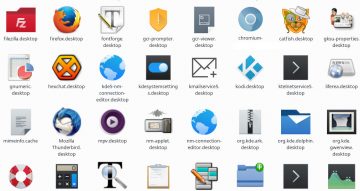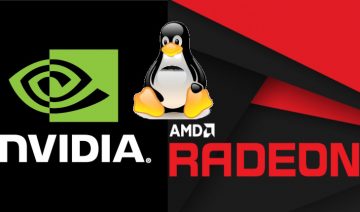The website LinuxQuestions.org (LQ), primarily noted for its distribution-agnostic Linux forums, has conducted its annual Members Choice Awards contest were active members of the site are called to cast their vote regarding the software they believe should be the winner of a certain category.
Through a series of forum poll threads, members could vote for their selected software only once and could also leave a comment concerning their vote.
The contest was ended this month and the results were published recently.
How Reliable Are The Results?
In order to understand the reliability of the results in relation to the majority of Linux community and to what extent do they reflect the general notion, I’d like to set a few ground facts first.
LQ is one of the oldest self-help forums targeted at Linux users (launched in 2000), boasting in over 566,000 registered users.
For perspective sake, although based on a statistically calculated estimation, it is estimated that the number of Linux users world wide is currently (as of time of writing) stands at no less than 90M (90,000,000) users[1].
The votes themselves comprise of a few dozens and up to a few hundred voters (depending on the category). For example, Desktop Distribution of the Year category received 842 votes while Linux Server Vendor of the Year received 79 votes.
Since its inception, LQ had never been affiliated with any specific Linux distribution, rather, appealed to the entire Linux community in general.
It is run by a person named Jeremy Garcia which is both the owner and founder of the website, helped by a team of moderators.
Addressing the question: what guidelines should direct users decision? LQ answers that they recommend basing it on “which application you found most valuable … along with which project you feel made the largest improvements”.
Nevertheless, LQ stresses that it’s up to the user to decide eventually and that there are no guidelines “set in stone”.
The contest consisted of 36 polls, i.e. a variety of 36 different categories to vote on (you’re more than welcome to check out through the link provided earlier), from which however, I’d like to focus your attention on several interesting ones.
Slackware is the Desktop Distribution of the Year
I’m pretty sure a few eyebrows are raised over this one, including mine to be honest.
Slackware, to those of you who are unfamiliar with it, is the oldest Linux distributions that is still maintained to this day.
The main feature that sets Slackware apart from other Linux distribution is the raw way in which it handles packages, that is, it includes no automatic dependency resolution of software packages by default (when you install a package, you need to sort its dependencies on your own otherwise it won’t work).
Slackware is therefore considered to be most suitable for advanced and technically inclined Linux users.
Granted, it is quite surprising why a chunk of Linux users have chose Slackware to be their desktop distribution of the year while that distribution is basically beyond the reach of the average Linux newbie.
To explain that choice, I’d like to bring back your attention to one of the ground facts I’ve noted earlier – “LQ is one of the oldest self-help forums targeted at Linux users”.
It’s probably safe to assume that since both LQ and Slackware have been with us for a long time by now and that due to the fact Slackware appeals to advanced Linux users – that a relatively large proportion of Slackware users became registered at LQ which offers Linux support for them too, among others.
furthermore, another fact we can’t ignore is that other, commonly known as popular Linux distributions, has their own help forums to assist their specific user-base; Ubuntu Forums, Linux Mint Forums, etc…
Beyond that, it’s probably relevant to mention that these are no news for LQ themselves, taking 2014 awards for instance: Slackware together with Ubuntu and Mint were all chosen to be the winners of that year and in 2015 all three were pretty close as well, so as they are this year.
So, in my perception, it seems we can assume there might be a slight distribution bias in this case, although the voting consisted of more than a handful of hundred voters.
Firefox is the Browser of the Year
A personal surprise for me I must say, as a website owner and administrator, I often find myself indulging in browsers statistics (which I also wrote about not too long ago: The Reign Of Chrome! Google’s Browser Now Officially Dominating The Market), it’s somewhat bewildering why Linux users seem to go against the grain here and chose Firefox out of the variety of choices offered to them.
If we examine this choice through looking at the bigger picture, Linux users are kind of rebels by nature, that is, Linux is not a popular desktop OS either yet we use it nonetheless.
However when we look at it through the browsers scope once again, Linux users also have Midori, Vivaldi, GNOME Web (Epiphany) and other browsers to choose from. And still, Firefox, if we take a look at the statistics, didn’t only won the category but sweepingly won it.
So there’s definitely more to it than simply going against the grain. Perhaps the answer actually lies in usability in that case;
While the stability of Midori and GNOME Web, for example, and their support of Web technologies might be in question by some users (since the Web is fast pacing and these are run by relatively small projects), it is unclear then why Google Chrome / Chromium would lose points in the eyes of the Linux user.
Once again, the answer perhaps lies in the fact that the voters consists of long time Linux users which started (and gotten used to) using Firefox long before Chrome even existed.
Supporting that last claim, is the declining percentage of Firefox voters over the years: in 2014 Firefox received – 57.79%, in 2015 – 55.39% and this year – 51.74%, all that while Chrome appears to increase in user share.
So yes, Linux users might be loyal to their old habits, yet new trends are slowly creeping up on them.
Desktop Environment of the Year?
A few years ago it was speculated that GNOME is probably the most popular desktop environment on Linux platform and for good reasons, but nowadays, as the statistics report it’s no longer so, and actually, I don’t think this would come off as a surprise to most of you, but I do think it’s an interesting case though.
According to the statistics pie, GNOME is not second to KDE’s Plasma nor it is 3rd or even 4th. GNOME Shell is actually 5th and that is a little surprising, especially given it has the largest budget of all the other D.E. (maybe even combined).
For example: In 2015 GNOME reported an income of $644,174[2] while KDE reported €125,810[3]. Even when taking into account the currency difference, GNOME still had an income equal to more than twice as much as KDE’s.
Without getting into the ways in which GNOME or KDE are spending / investing their budgets, the facts goes to show that it’s not simply a matter of money, rather, something else altogether.
In my subjective view, I think that one of the main reasons GNOME’s position deteriorated to such low, is because at some point, the competent developers of the D.E. stopped listening to their desktop users.
This is a point I’ve iterated in many other of my previous posts, yet perhaps for the first time, it is given a confirmation stamp by an unrelated group of Linux users who may or may not reflect the majority.
Nonetheless, even I was surprised to see GNOME ranked 5th at first glance, however upon closer inspection I’d say that it’s perfectly reasonable that KDE, Xfce, Cinnamon and Mate have larger user-audience than current GNOME has.
And that’s perfectly fine, Linux is an open source platform and among users, developers too have their right to choose freely and go the path they see fit.











